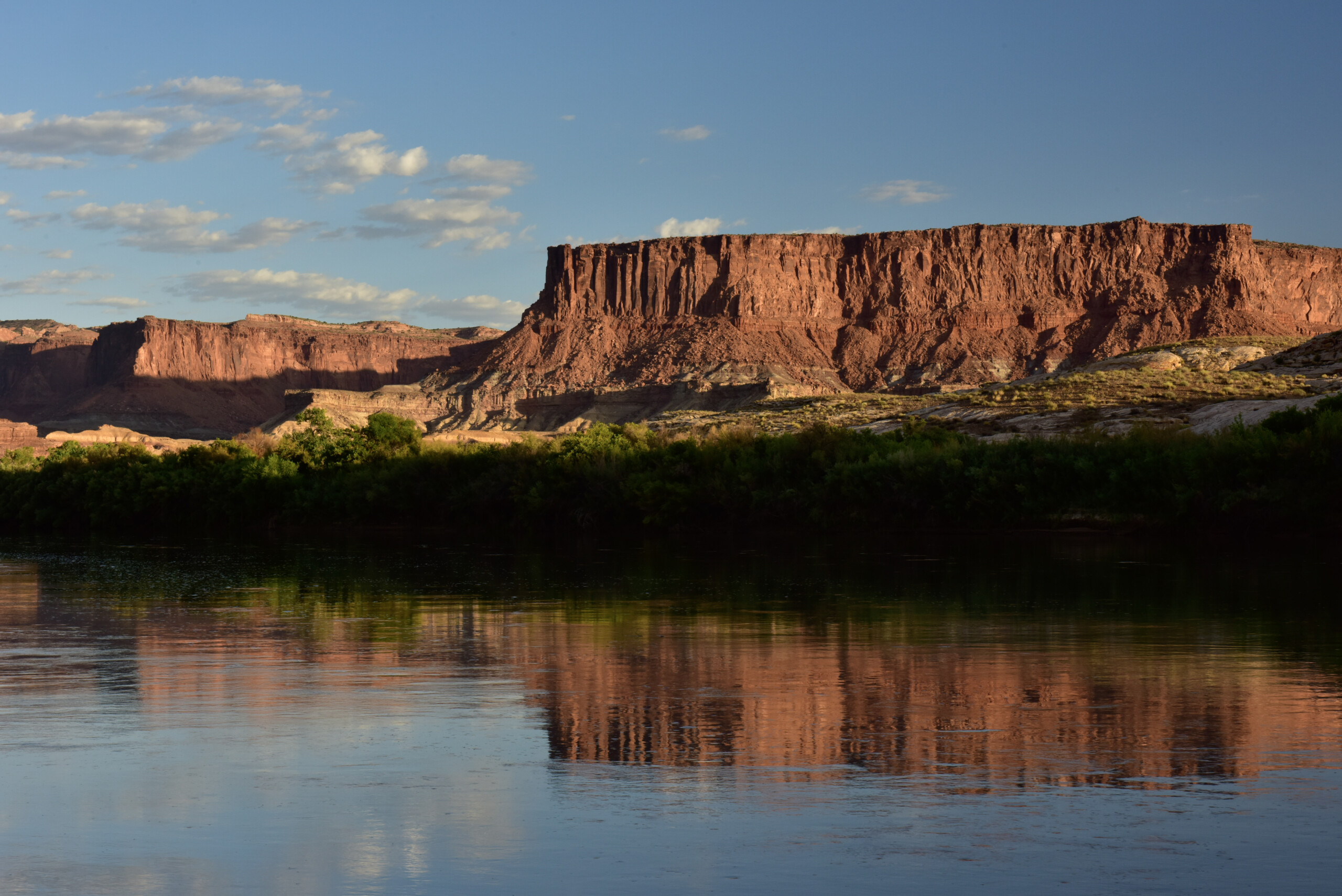The request for reconsideration follows the Utah State Engineer’s granting of a major water permit for the unprecedented mine on May 1.
GREEN RIVER — This week a coalition of river advocates and residents acted to unwind the Utah State Engineer’s decision to approve water for a lithium mine less than a half mile from the banks of the Green River, the Colorado River’s largest tributary.
The State Engineer’s May 1 decision raises considerable questions about the future of lithium mining on the nation’s most imperiled river system. The coalition, which includes farmers and residents in Green River, is worried that the State Engineer’s decision sets a dangerous precedent for deep groundwater drilling in areas where there’s groundwater contamination and connectivity with surface water sources.
The coalition filed a request for reconsideration with the Utah State engineer following the recent decision from Utah’s top water regulator, coming after months of back and forth between protestants, regulators, and the company applying for the water rights, Blackstone Minerals LLC, which is a subsidiary of Australian-based and foreign-backed Anson Resources.
Anson’s application requests billions of gallons of water from an aquifer system 10,000 feet below the surface for annual appropriation to tap deep lithium brines. The application promises to return every drop to the aquifer — known in the industry as Direct Lithium Extraction (DLE) — but there is little scientific evidence that doing so is possible.
The decision follows a blowout at the Anson job site earlier this year that occurred during exploratory drilling. The company shrugged off any notion that the volatile geologic makeup of the Paradox formation near the town of Green River, replete with high pressure gases, would be problematic.
Additionally, the approval arrived as advocates raised awareness about the project’s wells being located within a state-approved Area of Concern that limits shallow groundwater pumping because of aquifer contamination from radioactive waste left behind by a uranium milling facility that is now a Department of Energy Legacy Management site.
The project will be within a mile of residents, agricultural operations, and an important wash that sends water into the river.
“We are not against lithium mining in Utah,” said Kyle Roerink, executive director of the Great Basin Water Network. “We are for sound policy and prudent management of water resources. This application calls into question whether Utah water law is prepared for the lithium rush. There’s no evidence that the proposals will be zero consumptive use. There is no such thing.”
“Blackstone and its foreign investors are looking to make money as quickly as possible off of Utah’s resources,” said John Weisheit, conservation director, Living Rivers-Colorado Riverkeeper. “We need to slow this down, carefully review, and question whether this was a legal application of the law. We have that right and will flex our rights to ensure the best outcome for the public. Would you want mines pumping and drilling in volatile geologic formations near a radioactive aquifer in your community?”
“Our family’s farming operations and future in Green River depend on clean waters and lands free of industrial hazards,” said Gayna Salinas, a landowner, farmer, and water rights owner neighboring Anson. “This project jeopardizes everything we’ve worked for and built in Green River.”
The State Engineer and the Division of Water Rights will now have 20 days to issue a preliminary order, deny the request, grant relief, set a re-hearing. If there is no action, the request is denied de facto.
The coalition can then choose to appeal the decision to district court.
Contact: Kyle Roerink
Great Basin Water Network
702-324-9662
kyleroerink@greatbasinwater.org
John Weisheit
Living Rivers-Colorado Riverkeeper
435-260-2590
Gayna Salinas
Resident, Green River
grredeemed@gmail.com
435-630-7631

